The latest version of The Color Purple is touted as a “celebration of sisterhood” by some, which is certainly a major theme in the movie, but what still strikes me the most is how sad Celie’s life is for several decades. Unfairly labeled as dumb, ugly, and lazy by her father and then her husband, Celie accepts these labels rather than fighting back like the women around her do when mistreated.
Memes, self-help gurus, and the like will tell you to ignore what others say about you; how you should focus on your virtues and feeling good about yourself. It’s what Shug and Sophia do in the movie and it’s a lovely idea, but the truth is that most of us are influenced by what others say about us—particularly when short, succinct labels are used, and especially when those labels carry sociopolitical implications.
The meaning may vary based on who applies them and to whom. Sometimes they make you feel better, and sometimes worse. They may make you question your values, or simply make you defiant. Oftentimes they’re even self-applied, whether accurate or not. But words are important, and our identities frequently coalesce in reaction to these terms. Having a label makes it seem more . . . real.
You know the words: progressive, liberal, ally, libtard, snowflake, atheist, left-winger, right-winger, religious right, conservative, evangelical Christian, extremist, blowhard, racist, bigot, misogynist, white supremacist, sexist, homophobe, and a few I can’t even type . . . it’s a long list, with new words added regularly.
What Qualifies as “Liberal”?
I am not a fan of labels; as a general rule, I fear their power, but especially that of those listed.
Although I’ve always voted in one direction, I’m a registered independent. As those who follow me know, I’m also not a fan of the term “ally” because too many people do those one or two good deeds and then wear the moniker like a medal forever, a kind of virtue signaling. Being an ally should be an ongoing commitment to helping those who are oppressed or even, at times, endangered, and doesn’t require a label. This isn’t to say you need to commit every waking moment to it, but that one time you spoke out for your one Black friend does not an ally make.
I used to think the term “liberal” was realistic. It requires, at a minimum, generally voting on the Left and supporting individual rights. Believing in gender, race, and LGBTQ equality, if not perhaps also equity, reparations, and the like (which seem to fall more under the umbrella of “progressive” these days—left of the Left, if you will). Liberal means caring about your fellow human beings, regardless of what you have in common, following the example of Jesus and other religious icons, whether the liberal in question is religious or not. Not perfection, because we are human after all, but working to be the best and most fair people we can be.
As the right keeps moving further to the right, however, and as America has become so politicized, people feel the need to declare themselves definitively “right” or “left,” right or wrong, one or the other. Liberal has moved to the middle, and progressive—which would have been labeled common, everyday liberal in the 1960s—is seen as extreme.
Are We What We Say?
The result of these moves disheartens me and dilutes the very heart of liberalism. You can’t really depend on liberals being, well, liberal!
Feminists are a good example. During the “down years” when many women didn’t recognize the continued need for feminism, more of us who continued the good fight also recognized the importance of equal rights for other demographic groups (although it should be noted that feminism in general has a very spotty history in this regard). These days, however, it seems to be simply a selfish concern for the loss of rights we’re currently experiencing:
- When feminist rallies began again several years ago after a long drought, white women shut down their sisters of color.
- Amy Cooper, aka “the Central Park Karen” and self-defined feminist, called the police on Christian Cooper (no relation) for asking that she follow the leash laws—saying ‘an African American man was trying to kill her.’
- Locally, when a Black woman was harassed by the police during a women’s march several years ago, the white women just kept marching on by.
More broadly, I recently read an op-ed titled “This is the Actual Danger of D.E.I.” (Diversity, Equity, and Inclusion), in The New York Times by a self-avowed liberal that left me angry, fed-up, and full of despair. In it, he professed to support the idea of DEI and decried the ways in which the right is turning it into another “catchall boogeyman,” but went on to spend the bulk of his article lamenting the ways in which “D.E.I. efforts are undermining American constitutional values” as a means to the end—particularly the rights of white, and especially white male, Americans.
I don’t advocate exchanging one wrong for another, of course, but the article was rather one-sided; it felt like the rhetoric about the Right was simply there to cement his position as a “liberal.” He focused on the downside of DEI implementations, vs. DEI itself, and never talked about the good DEI programs do; there was a shortage of comparative statistics. But even worse were the responses from all the self-defined liberal New York Times readers—well educated people who vote to the Left, but who couldn’t manage to find anything good about DEI. Some said simply, “Great article. It needs to go away”!
Let’s Try to Do Better
I imagine there are several reasons for labeling oneself liberal when it isn’t very accurate, virtue signaling among them but also trying to do better. Unfortunately, we can’t see our blind spots very well.
So what’s the solution? Although I dislike labels, they do have constructive purposes, and I don’t think it would be possible to do away with them even if we wanted to—humans are hard-wired to assign words to make sense of our world. But we can be kinder, gentler people when assigning them. Americans have become very vitriolic when talking to and about the “other side,” and nobody is setting a good example. Many of us on the Left have become the very things we’ve been accused of at times (I know I can be very mean). Most of us have good and bad in us, but if we focus only on the bad in someone, it makes it harder for them to evolve.
Beyond that, we need to be more honest with ourselves. I don’t know where one would draw the line between virtue signalers, liberal wannabes, and actual liberals (or liberals vs. progressives), but we can all do better.
There is a ton of great information out there about racism that most white people don’t know much about; read up—starting here with articles at OHF Weekly, books in our Reading List or what our authors say elsewhere! Then (and only then) have open conversations with your Black friends where you listen to their concerns and their reality. Rather than focusing on your retort to a feminist, hold your ego back long enough to listen and learn why they feel the way they do. Try to imagine just how hard it still is to be gay or transexual in our society; look at the homeless and suicide rates. And even though white men are at the top of the patriarchy, most of them are struggling too.
It may be a cliche that honey works better than vinegar, but it’s no less true and we’ve lost sight of that. Let’s worry less about the labels and more about the messy, complicated people behind them.
Love one another.
Sherry Kappel
OHF Weekly Managing Editor
NEW THIS WEEK
Diversifying Citizen Science Projects

For this project, outreach through partner groups produced a more representative set of volunteers.
Recruiting participants for a citizen science project produced a more diverse group when people were signed up through partner organizations, such as schools and faith-based organizations, than when they joined on their own. We used this approach to recruit volunteers for Crowd the Tap, a citizen science initiative that crowdsources the locations of lead plumbing in homes.
We signed up 2,519 households through partner organizations, in addition to 497 households that signed up on their own. We recruited households from all fifty states, though the majority came from North Carolina. Our project was initially funded by the Environmental Protection Agency, which led to nationwide sampling, but additional funding from the North Carolina Water Resources Research Institute led to prioritizing sampling in North Carolina.
We recruited 2.2 times more Black participants and 2.3 times more Hispanic or Latino participants through partnerships than we did through individual sign-ups. This allowed us to assemble a group of volunteers that more accurately represented the U.S. population. In addition, 11.2 times more lower-income participants took part in Crowd the Tap through partner organizations than on their own.
Read the complete article at OHF Weekly.
The Country That Cried Wolf

Humanity, it seems, has gotten to a place where people must prove, often in the face of vile shouts and intimidation, the validity of their experiences. The right to call one’s own experiences what we perceive them to be is not guaranteed. Arguments of reason have been replaced by arguments of extremes. Not to mention, the backdrop often being public forums that have evolved into gauntlets that too often put people in “gotcha” spaces, not of their creation. Mistrust has filtered into our discourse, pushed by agenda-furthering messages. The manipulation of information, a billion-dollar endgame, infects our embrace of shared values. Polarizing postures morph into realities to be defended and defeated. Critical thought is no longer expected, much less valued, modeled, and demanded.
Tragically, people’s life experiences, their joys as well as their traumas, are being defined by agenda-laden extremes. It’s worse than telling rape victims they asked for it. Worse than telling victims of racial injustice they’re playing the “race card.” As a society, we too often marginalize others without regard for who they are as people. We double down when our assertions are countered instead of listening reflectively. Delivering well-crafted “red meat” sound bites to move audiences towards self-affirming cheers echoed from well-hoed ditches is paramount. Messaging, data manipulation, trolling, fake news, and now AI-generated imaging are employed, eclipsing voices coming authentically from places seeking rational decision-making and adult conversations.
Take the hot-button words antisemitism and genocide, for example. Today, these words push people to take sides in a war where daily loss outdistances any prospect of hope.
Read the complete article at OHF Weekly.
Calling all Poets to Tapestry!
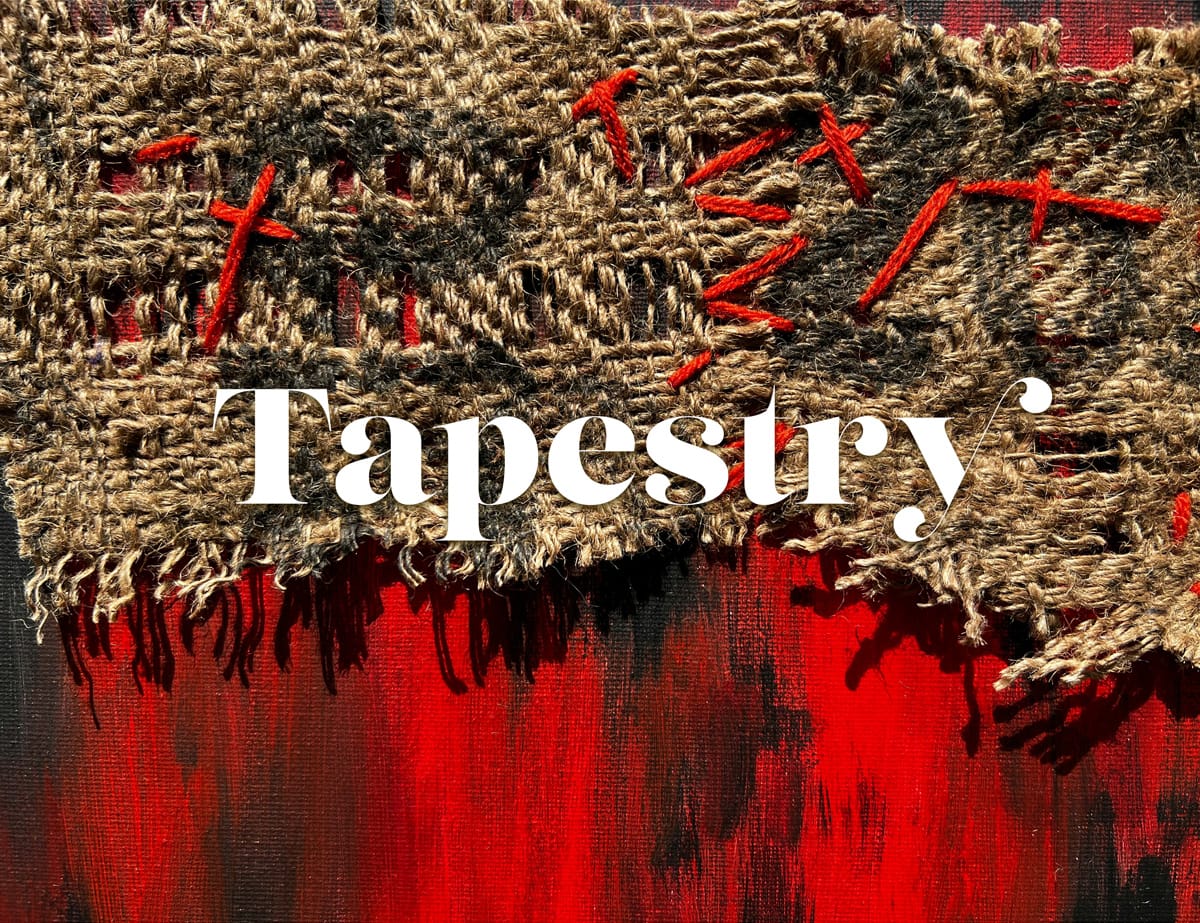
Tapestry is a new section of Our Human Family devoted to poetry that celebrates both our similarities and our differences, but most of all our shared humanity. It’s poetry that seeks to recognize the contributions from . . . foster racial equity and allyship for . . . and support inclusion of marginalized people into the beautifully varied fabric that is America.
You might remember “Equal People,” a special month-long poetry “series” we ran several times (2020 series); now we’re making poetry a permanent, ongoing part of the publication.
At Our Human Family, we believe people can change when we want to change, when we believe change is possible, and when we know how to change. So we want to give people the tools to become better human beings, the people we were created to be, and poetry is a wonderful way to reach people—whether you’re a reader, writer, or both.
Tapestry’s writers can be of any skin tone, gender, sexual identity, age, nationality, and profession. You can be an avid poet who’s written verse for years, or someone game to give it a shot for the very first time.
What you should share in common with other Our Human Family writers is a love for humanity. You should be familiar with the rich contributions of Black, Indigenous, and People of Color to America.
Submissions will be accepted starting immediately. We look forward to reading and sharing your poems!
Clay Rivers and Sherry Kappel
Editor-in-Chief and Managing Editor of Our Human Family
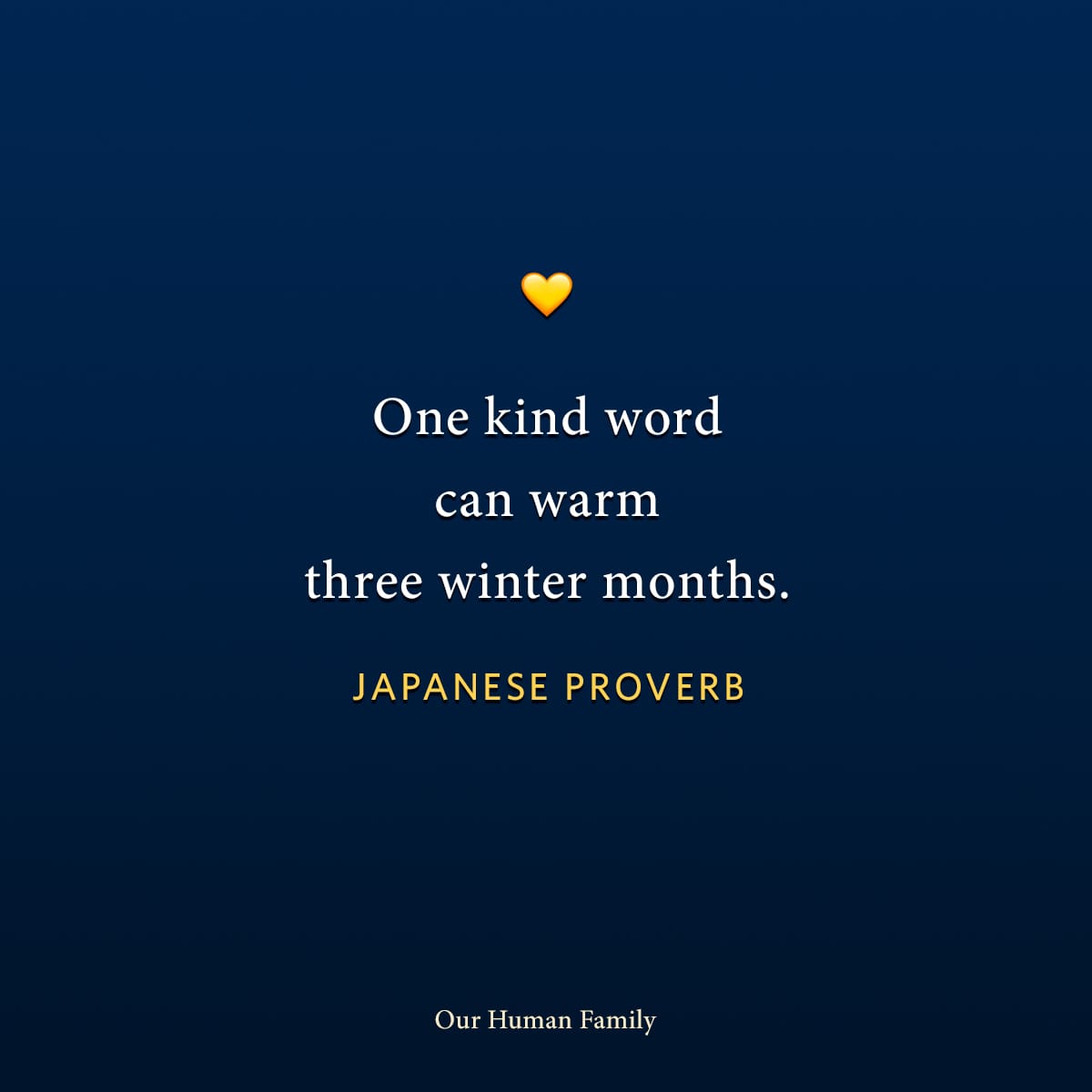


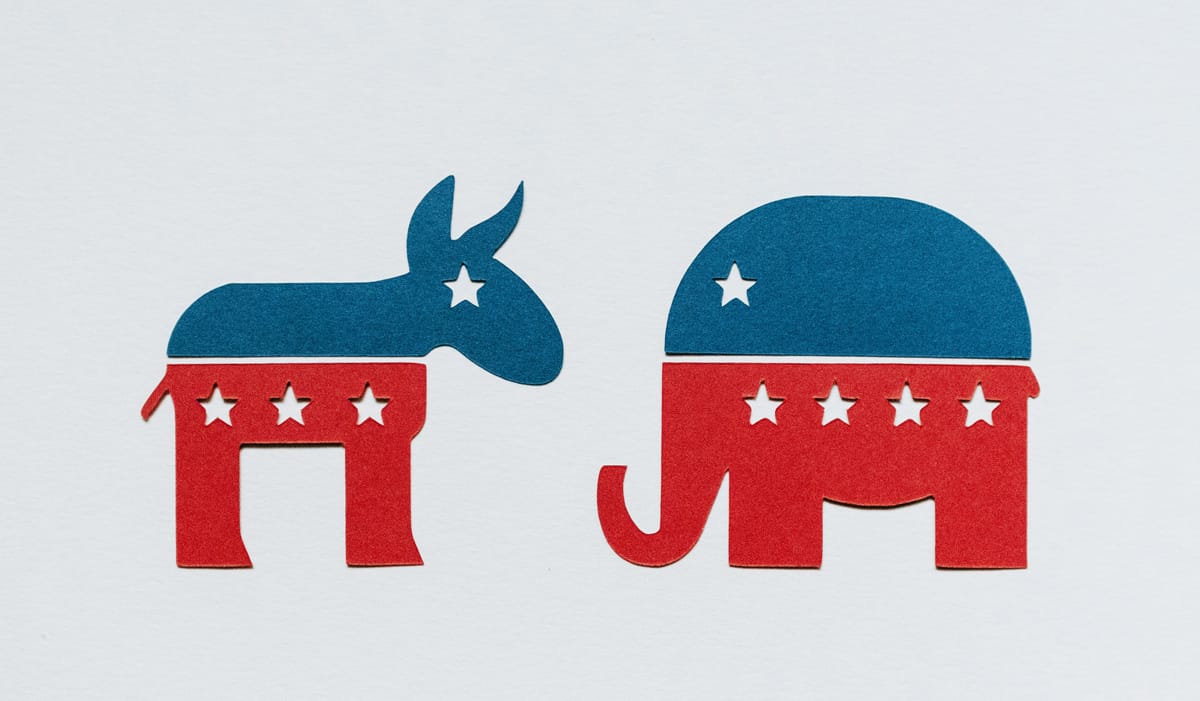

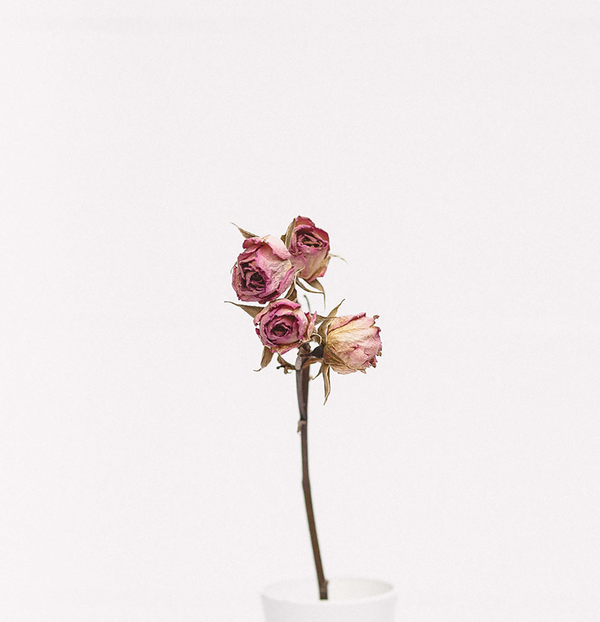
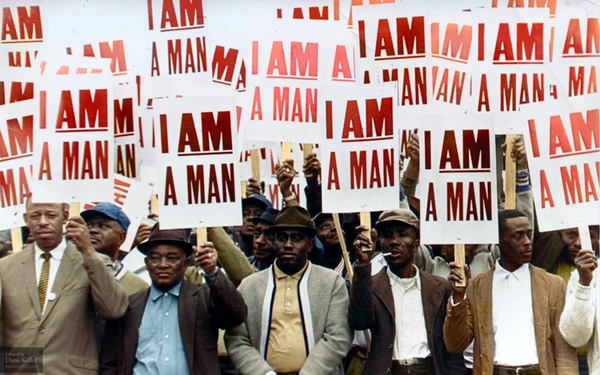
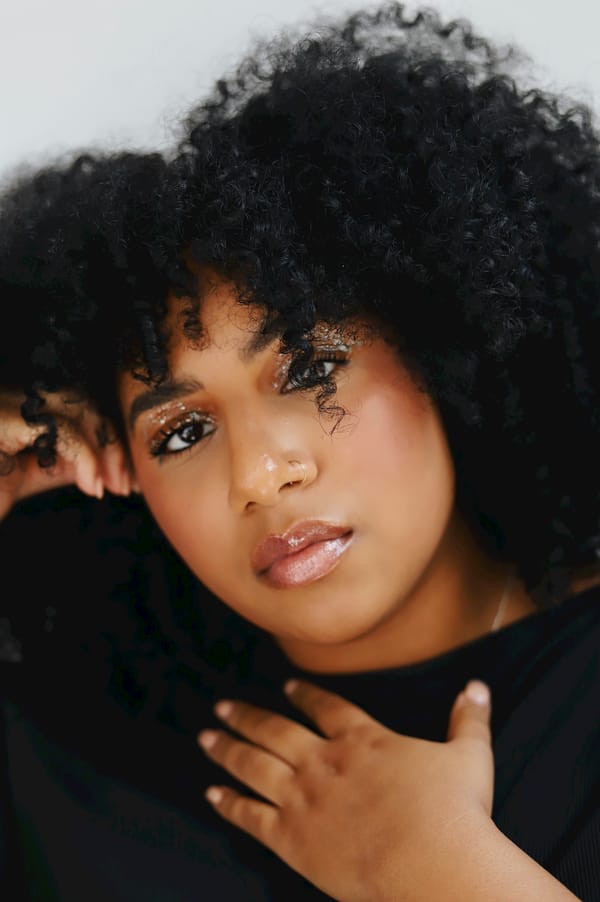
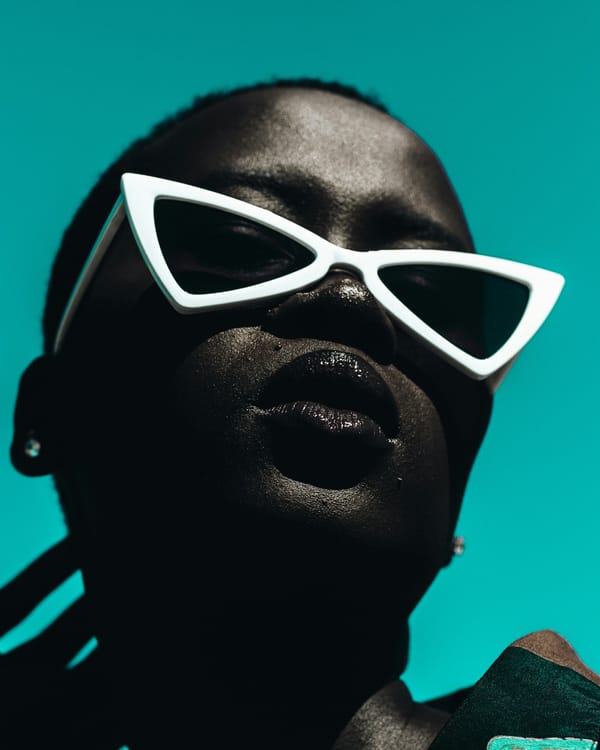
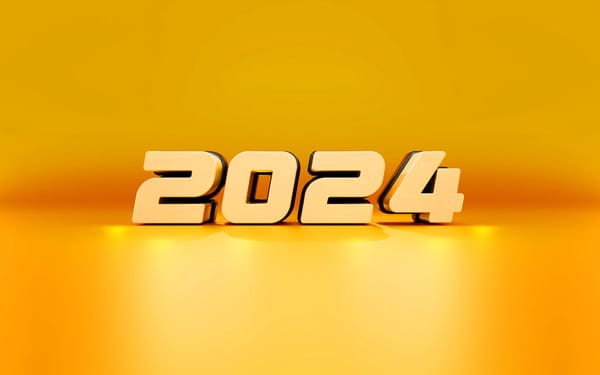
Member discussion